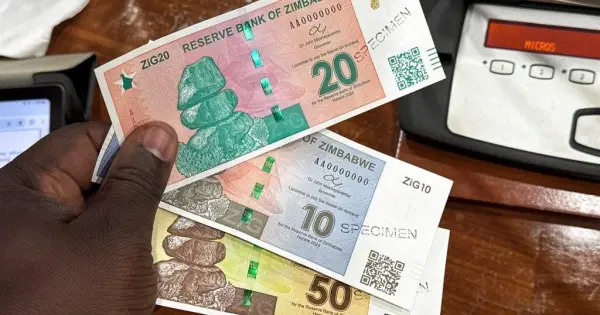The Zimbabwean government has proposed a new annual wealth tax on houses valued over $250,000 in the 2024 national budget. The tax was initially announced at 1% on properties valued over $100,000, but the threshold has since been raised after feedback from stakeholders. Here is an overview of how the tax will work and its potential effects.
How the Tax Will Work
The tax will apply to the value of any non-primary residence valued over $250,000. Primary residences, defined as the house an individual normally resides in, will be exempt.
The tax rate will be set at 1% of the property's value. However, there will be a maximum cap of $50,000 per year that any one individual will pay, regardless of the number or value of properties owned over $5 million.
For example, an individual owning a secondary home valued at $300,000 would pay 1% of $300,000, which is $3,000 annually. Someone owning a property worth $5 million would still only pay the $50,000 maximum.
The tax aims to raise funds for public infrastructure projects and health initiatives. The government stated the need for additional revenue to support cancer treatment infrastructure and medication costs as a driver of the tax.
Potential Effects of the New Tax
Revenue Generation
The tax aims to increase government revenue for infrastructure and health projects. However, its impact will depend on the number of non-primary residences in Zimbabwe valued over $250,000.
With the cap at $50,000, the maximum revenue from any one individual is limited. The total revenue raised will depend on how many properties fall into the taxable bracket.
Reduced Real Estate Investment
The tax may deter some investors from purchasing real estate valued over $250,000 as rental properties or secondary homes. The additional cost each year may make some marginal investments less appealing.
However, the impact is likely muted given the tax only applies to the value above $250,000. For property investors already planning to spend over $250,000, the tax represents a small added cost.
Increase in Lower-Valued Property Transactions
We could see an increase in demand for houses just under the $250,000 threshold in response to the tax. Individuals looking for secondary properties may opt for less expensive homes to avoid the tax.
This could raise prices slightly for homes valued between $200,000-$250,000. It may also reduce transactions for higher-valued properties. Sellers may have to lower prices somewhat to account for the tax.
Revenue Use Monitoring
Since the tax revenue is earmarked for healthcare and infrastructure, citizens will likely want transparency on how funds are used. Monitoring mechanisms could be needed to track spending and ensure it aligns with the stated goals.
Progress reports on initiatives funded by the tax revenue would also help maintain public support. Oversight from lawmakers and auditing will be key.
Pros of the House Tax
- Raises revenue for healthcare and infrastructure without overly burdening middle-income earners. The $250,000 threshold targets higher net worth individuals.
- Discourages rampant real estate speculation and reduces price inflation, making housing more affordable.
- Gets additional funds from those most able to pay rather than over-taxing lower earners. Progressive tax policies are generally seen as fairer.
Cons of the House Tax
- Harder to monitor and collect than other broad-based taxes on income, sales, VAT, etc. Requires valuations and ownership tracking.
- Could reduce foreign real estate investment if seen as a deterrent for secondary homeowners and landlords.
- Valuations can be subjective, leading to possible disputes over assessed home values. Appeals process would need to be robust.
- $50,000 maximum means very limited revenue from ultra high net worth owners with multiple properties.
Overall, the new house tax aims to raise government revenue from those most able to pay to fund public projects. However, implementation will need to be monitored closely to maximize benefits and minimize negative consequences. As with any new tax policy, there are pros, cons, and uncertainties. Its success will depend greatly on administration, oversight, and continued public support.




